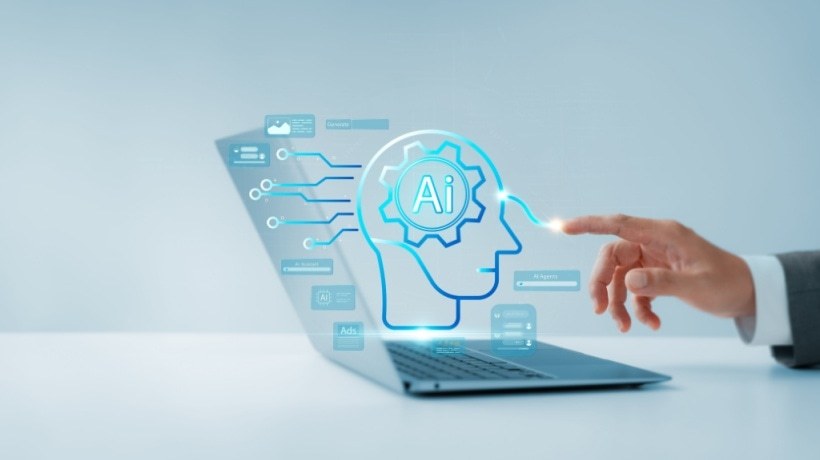Is AI And Adaptive Learning Just A Trend In LMSs?
If you've ever taken an online course, you've most likely done it through a Learning Management System (LMS). These platforms help instructors and companies create, deliver, and manage learning experiences, and even track learners' progress and organize quizzes or assignments. In recent years, though, LMSs have started embracing a new tech trend: Artificial Intelligence. AI in LMSs is used to analyze data, predict learner needs, ease the process of giving feedback, and even personalize entire learning paths. This has led us to adaptive learning. But what exactly is it?
Adaptive learning is a teaching method leveraging AI that adjusts the learning experience to fit each learner's needs, preferences, and level. Unlike traditional courses that follow a certain path for everyone, adaptive learning platforms use data to shape each user's path. For example, if a student struggles with a concept, the system might slow down and offer extra help. If they seem to have grasped the concept, it offers more challenging material.
But the real question is, is adaptive learning the future of education? Will all LMSs eventually integrate AI? Let's see what AI features are already used in LMSs, the driving forces behind this shift, and what the future holds.
AI Features Used In LMSs
Chatbots And Virtual Assistants
AI-powered chatbots and virtual assistants are built into many LMS platforms to answer questions, guide users through the system, and even offer emotional support. They're designed to respond instantly and be available 24/7, which is ideal for learners in different time zones or working unusual hours. But how does it work? Chatbots are trained on data. When a learner asks a question, the bot understands and shows them the right answer or directs them to the corresponding part of the platform. Some chatbots even act as coaches. They might remind you of an upcoming test, nudge you to complete a module, or suggest extra resources.
Smart Recommendations
Smart recommendations in LMSs analyze a learner's behavior, preferences, performance, and goals to suggest the most relevant content. Again, the AI in the system studies some data, such as completed courses, quiz scores, interaction time, interests, and job roles. It then matches that data with content in the LMS to offer suggestions like resources, extra modules, related courses, or content based on the learner's level and job role.
Assessment Analytics
When it comes to assessments, AI-powered analytics not only check for right or wrong answers but can also spot patterns, predict outcomes, and guide both students and instructors on what to do next. AI algorithms analyze quiz and test data to do this. Then, they can detect things like students consistently missing the same question, learners performing better on certain assessments, or student performance dropping over time. This information can be used to adjust the difficulty level of quizzes, fill learning gaps, or prevent issues.
Why Is AI Integrated In LMSs?
Accessibility Of AI
Not too long ago, using AI was expensive and required experts. Today, it's widely accessible to most people. Many LMS providers no longer need to build AI on their own. They can use existing models and services, AI content curation tools, or AI-powered analytics. That means even mid-sized platforms can start offering smart features. Plus, modern LMSs are flexible so that they can incorporate AI through third-party tools.
Demand For Personalized Learning
Nowadays, learners want learning experiences that feel tailored to them, and that's where AI helps. Adaptive learning, powered by AI, makes personalization possible. Instead of just letting people choose their own pace, it adjusts the content based on their performance, preferences, and even predicted future needs. For instance, the platform notices you're struggling with a concept and gives you extra resources, quizzes, or explanations. On the contrary, if you've mastered a topic, it lets you move forward.
Remote Learning
We all know what happened in 2020. For many companies and schools, remote learning became the only option—and for some, it still is. Then came AI. AI-powered LMS features help solve some of the biggest challenges in remote education, such as tracking engagement, recommending content, and grading or giving feedback. And since eLearning is here to stay, automating most of its processes with AI benefits everyone.
Pressure To Improve Learning Outcomes
Institutions are under pressure from students, parents, and stakeholders to show progress and improvement. Likewise, businesses are investing in training but want to see results: higher productivity, better compliance, and fewer mistakes. That means LMSs must help learners retain knowledge, identify who needs help and when, create learning paths based on performance, and show the numbers that back all this up. All these are possible with the help of AI.
Will All LMSs Shift To AI?
Right now, the EdTech industry is full of innovation. Adaptive learning platforms are becoming more popular, and the LMS market needs to keep up. AI plays a huge role in this shift, offering everything from smart content recommendations to automated assessments and real-time learner data. But what is going to happen? Will AI take over all LMSs?
The first scenario is that AI-powered features like personalized learning paths or predictive analytics become a standard. Many platforms already have them, and the rest are expected to offer them as part of their standard package rather than as an extra.
The second scenario is that not every organization will be ready to adopt AI. That's why we might see optional AI-powered add-ons or systems that schools or companies can activate when they're ready. This will give more control over costs, privacy, and when it will be implemented. Plus, it allows for each organization to use AI based on its needs.
Lastly, since open-source LMSs like Moodle often rely on AI tools built by others, companies and schools can create their own much cheaper. However, this is only possible if they have skilled developers. So, while some schools might be able to use AI features, others may find it tough to keep up because of limited resources.
Despite AI's benefits, there's still a risk of inequality. Institutions with big budgets and tech teams will adopt AI faster, gaining an advantage. Meanwhile, underfunded schools or small organizations may fall behind. So, will all LMSs integrate AI? Eventually, most probably will, but we can't know how soon or how effectively.
Conclusion
In the end, will all LMSs integrate AI? Maybe not right away. As AI tools become more accessible and people expect personalized learning, most LMSs will likely adopt some form of AI, whether their own or third-party. But it's not enough to just use it. AI must be used thoughtfully, with inclusivity in mind and a goal to improve the learning experience. Without that, even the smartest platform can fail. After all, it's about making learning better for everyone.








